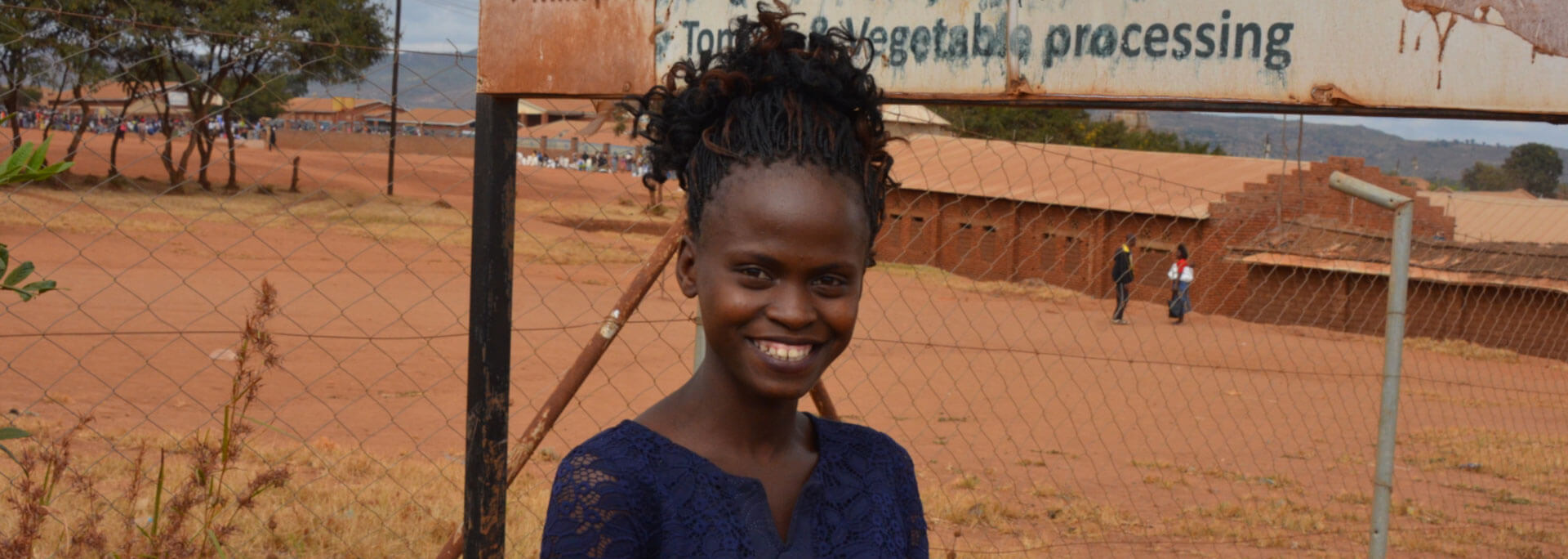Qualified adolescent young girls and women, or AGYW, as well as vulnerable young men in Malawi face many barriers to access higher education and safe employment. Forty-five percent of that nation’s 19.1 million people are under the age of 15, making Malawi one of the world’s youngest and fastest-growing countries. This demand leaves over 80,000 secondary school graduates each year without access to higher education.
Susan Banda, 24, is the first-born of a family of six from the Dowa district of central Malawi. Her parents run a small-scale farming business. Despite qualifying for higher education after completing her Malawi secondary school certificate in 2016 with 30 points at Chipasula Secondary School, Banda did not get selected into the public university. With her parents unable to afford tuition for a private university, Banda’s path to higher education appeared blocked.
But she refused to give up on her dream of further studies. In 2018, she walked six kilometers from her village to the Dzaleka refugee camp, located near the capital of Lilongwe. The camp has a population of nearly 34,000 refugees from neighboring countries, and there Banda attended a Jesuit education class. “It wasn’t easy, but through hard work, I managed to get a certificate in sustainable agriculture and nutrition,” she says.
Still, she struggled to find a job or an internship. Her luck finally changed in February 2020 when she heard through WhatsApp about a mushroom production short course offered at LUANAR — Lilongwe University of Agriculture and Natural Resources–Bunda campus. The course was supported by SHEAMA — the Strengthening Higher Education Access in Malawi Activity.
SHEAMA is four-year project for AGYW and vulnerable and disadvantaged youth, funded by USAID and managed by Winrock International under a cooperative agreement between Arizona State University and USAID. It is designed to increase Malawi’s skilled and employable (including self-employed) workforce by improving collaboration among higher education institutions in Malawi and by increasing the access, quality, quantity, relevance and success of open, distance and e-learning courses and degrees.
The two-week mushroom production course was the first short course offered by SHEAMA in partnership with LUANAR. Banda was among 29 students, 15 female and 14 male, who attended the training from different districts across Malawi including Chitipa, Likoma, Salima and Chikwawa districts. Scholarships were offered to 26 students, 13 males and 13 females, including Banda.
The course featured participation from local industry figures such as Davis Chirwa, a young entrepreneur, motivational speaker and alumnus of LUANAR who has ventured into the mushroom production business. Chirwa shared a brief presentation to show the students some of the new farming methods he has adopted; cheap and affordable resources he uses to sustain his mushroom houses; and existing potential mushroom markets in Malawi.
Less than two months after the short course, Banda got a job as a coach at Churches Action in Relief and Development in Dowa district. CARD implements a livelihood project at the Dzaleka refugee camp that focuses on livestock, enterprise development and crop production, including mushroom production. The project’s coordinator, Noel Nthala, recalled that the project was expected to harvest 225 kg of mushrooms but produced only 55 kg, leaving his team frustrated.
“Soon after Susan joined the team, we went to the farm, and using the skills and knowledge she acquired from the training, she was able to identify the mistakes which were made; starting from the incubation house to the production house which was built inappropriately and affected the spawning of the seeds to produce less harvest,” Nthala said.
The next mushroom production of the project will commence in July 2020. Banda will be the coach and supervisor of a team of 20 members to make sure all the steps in the mushroom production process are followed correctly. For Banda, it is a dream come true.
“Now that I have a job, I can support myself and help my siblings to finish school,” she says. “But this is not where my journey ends. I plan to save some of the money I earn from work to rent a field and harvest soya in the next season. I will sell the soya harvests and raise enough capital of about 200,000 [Malawaian Kwacha, or about $270] to start my own mushroom production.”
